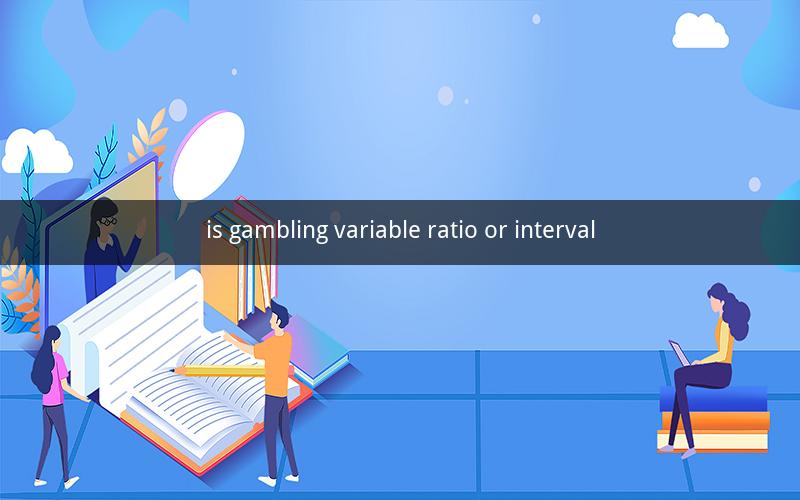
Directory
1. Introduction to Variable Ratio Schedules
2. Understanding Interval Schedules
3. The Difference Between Variable Ratio and Interval Schedules
4. Examples of Variable Ratio Schedules in Gambling
5. The Role of Reward in Variable Ratio Schedules
6. The Psychology Behind Variable Ratio Schedules
7. The Impact of Variable Ratio Schedules on Gamblers
8. Ethical Considerations in Variable Ratio Schedules
9. Conclusion
10. Questions and Answers
1. Introduction to Variable Ratio Schedules
Variable ratio schedules are a type of reinforcement schedule in operant conditioning where the timing of reinforcement is not consistent. This schedule is characterized by the number of responses required to obtain reinforcement, which can vary widely. The concept of variable ratio schedules is often associated with B.F. Skinner's work in behavioral psychology.
2. Understanding Interval Schedules
In contrast to variable ratio schedules, interval schedules are based on the passage of time. Reinforcement is provided after a fixed amount of time has elapsed since the last reinforcement, regardless of the number of responses made during that time. This schedule is commonly used in laboratory settings and in educational environments.
3. The Difference Between Variable Ratio and Interval Schedules
The primary difference between variable ratio and interval schedules lies in the timing of reinforcement. Variable ratio schedules are dependent on the number of responses, while interval schedules are based on the passage of time. This difference in timing has significant implications for behavior and learning.
4. Examples of Variable Ratio Schedules in Gambling
Gambling provides a clear example of a variable ratio schedule in action. Slot machines, poker, and other forms of gambling are designed to keep players engaged by offering unpredictable reinforcement. The player's behavior, in this case, is the number of responses (e.g., pulling a lever, playing a hand), and the reinforcement is the potential to win money.
5. The Role of Reward in Variable Ratio Schedules
The reward component is crucial in variable ratio schedules. In gambling, the reward is the prospect of winning money, which serves as a strong motivator. The unpredictable nature of the reward makes it even more compelling, as players are constantly searching for patterns or strategies that will increase their chances of winning.
6. The Psychology Behind Variable Ratio Schedules
The psychology behind variable ratio schedules is rooted in the concept of motivation. The uncertainty of reinforcement keeps players engaged and increases their motivation to continue participating in the behavior. This can lead to prolonged engagement and a higher likelihood of developing problem gambling behaviors.
7. The Impact of Variable Ratio Schedules on Gamblers
The impact of variable ratio schedules on gamblers can be both positive and negative. On one hand, the thrill of the unknown can be exhilarating and entertaining. On the other hand, the potential for financial loss and addiction is significant. Gamblers may find themselves chasing the next win, leading to excessive time and money spent on gambling activities.
8. Ethical Considerations in Variable Ratio Schedules
The use of variable ratio schedules in gambling raises ethical concerns. Critics argue that the design of slot machines and other gambling devices is intentionally designed to keep players engaged and to promote problem gambling. Ethical considerations include the responsibility of gaming companies to provide a safe and responsible gambling environment.
9. Conclusion
Variable ratio schedules play a significant role in gambling and other contexts where reinforcement is unpredictable. While the allure of potential rewards can be appealing, it is essential to recognize the potential risks associated with variable ratio schedules, including problem gambling behaviors.
Questions and Answers
1. What is the primary difference between variable ratio and interval schedules?
2. Can you provide an example of a variable ratio schedule in a non-gambling context?
3. How does the timing of reinforcement affect behavior in a variable ratio schedule?
4. Why is the reward component important in variable ratio schedules?
5. What psychological effects can variable ratio schedules have on individuals?
6. How does the design of slot machines contribute to problem gambling?
7. What ethical concerns are associated with the use of variable ratio schedules in gambling?
8. How can individuals recognize the signs of problem gambling?
9. What role does education play in preventing problem gambling?
10. How can gaming companies be more responsible in their design of gambling devices?